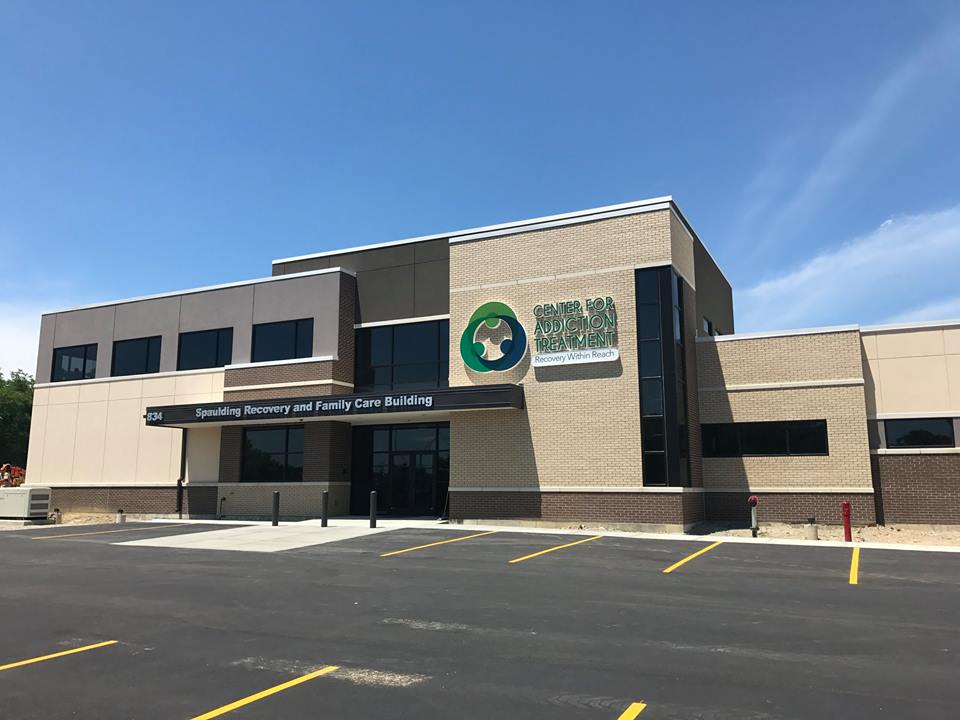Navigating the Journey of Detoxification in the Comprehensive Addiction Treatment Program
Starting the course of detoxing within the structure of an extensive dependency therapy program is a critical phase in the trip in the direction of recovery. The process of detoxification holds a significant duty in damaging the physical dependence on substances and preparing the individual for the subsequent stages of treatment. Nonetheless, navigating via detoxification is not merely an issue of physical cleaning; it requires an intricate interplay of emotional, psychological, and social elements that need careful consideration and assistance. As individuals grapple with the difficulties of withdrawal signs and symptoms and the uncertainties that lie ahead, having a durable assistance and an organized plan system in position comes to be paramount. In this conversation, we will certainly explore the complex elements of detoxification within the extensive addiction therapy program and clarified the crucial parts that shape this transformative journey towards recovery.
Relevance of Detoxification in Recovery

Detoxification establishes the structure for the remainder of the addiction treatment program by preparing the individual for further therapy and therapy. By cleaning the body of substances that have been clouding judgment and impacting habits, detox makes it possible for people to approach their recuperation with a clearer mind and stronger focus.
In addition, cleansing helps in handling the potentially severe withdrawal signs that might develop when medicine or alcohol use is quit. Doctor carefully keep an eye on patients during detox to guarantee their security and provide necessary assistance. Through this process, individuals can start their journey towards soberness with a maintained physical and psychological state, increasing the chance of a successful recuperation.
Recognizing the Detoxification Process
Detoxing, a fundamental part of addiction treatment programs, involves an organized procedure focused on safely getting rid of hazardous compounds from the body to facilitate an effective healing journey. The detox procedure commonly starts with an analysis to evaluate the person's compound usage background, physical wellness, and psychological health. This evaluation aids health care experts figure out one of the most ideal detoxification strategy customized to the individual's needs.
During detoxification, the body undergoes withdrawal as it gets used to the lack of the compound. Withdrawal signs differ relying on the sort of compound made use of, the duration of use, and private elements. Clinical guidance throughout detox is crucial to manage withdrawal signs and ensure the person's safety and security and convenience.

Managing Withdrawal Signs And Symptoms

Medications anonymous might be made use of to minimize specific withdrawal signs and symptoms and decrease discomfort. For example, drugs like methadone or buprenorphine can aid handle opioid withdrawal symptoms, while benzodiazepines may be used for alcohol withdrawal. It is vital for doctor to very carefully keep track of the person's feedback to these medicines to ensure their security and performance.
In addition to pharmacological treatments, supportive therapies such as therapy, peer support system, and alternative practices like mindfulness reflection or yoga can assist people manage the emotional and psychological obstacles of withdrawal. By addressing withdrawal signs comprehensively, doctor can improve the detoxing experience and support individuals on their trip to healing.

Assistance Solutions During Detox
Assistance systems play a vital duty in supplying social and psychological aid to people undertaking detoxing in dependency therapy programs. During the detoxification procedure, individuals usually experience a variety of physical and emotional withdrawal symptoms, making this stage tough - Addiction Treatment Center. Having a strong assistance system in area can substantially impact the individual's capability to navigate through detox effectively
Assistance teams provide a platform for people to connect with others that are going via comparable experiences, using a sense of community and shared understanding. Health care professionals, including therapists, doctors, and specialists, play an important role in checking the individual's progression, supplying medical support, and supplying assistance throughout the detoxification procedure.
Looking Ahead: Life After Detox
Having effectively completed the cleansing stage, people in dependency treatment programs currently focus on preparing for the obstacles and opportunities that exist ahead in their trip towards healing. Life after detox notes an essential change duration where individuals must proceed to construct on the progress made during detoxification to maintain their sobriety. It is necessary for people to acknowledge that the journey towards recuperation is ongoing and calls for dedication, commitment, and a readiness to welcome adjustment.
One key element of life after detoxification is the advancement of dealing mechanisms to handle triggers and cravings that might occur. This may involve finding out brand-new abilities, such as mindfulness practices, cognitive-behavioral strategies, and stress and anxiety administration methods, to navigate difficult situations without resorting to substance usage. Additionally, individuals are motivated to actively participate in continuous treatment, assistance groups, and aftercare programs to reinforce their support network and obtain support as they navigate the intricacies of life post-detox.
Final Thought
Comprehending the detox process and handling withdrawal symptoms are important why not try these out steps towards recovery. It is essential to recognize the significance of detoxification in the procedure of getting over dependency and moving towards a life of soberness.
Medical Homepage guidance during detox is crucial to take care of withdrawal signs and guarantee the individual's safety and convenience.
By understanding the detox procedure and its significance in damaging the cycle of addiction, people can embark on a path towards lasting healing.
Throughout the detoxification process, people frequently experience a range of mental and physical withdrawal signs, making this phase difficult. Medical care professionals, including counselors, therapists, and physicians, play a critical function in keeping track of the individual's progress, offering medical assistance, and using support throughout the detoxification process.
Life after detoxification notes a critical transition period where people have to proceed to develop on the progression made throughout detox to keep their sobriety.